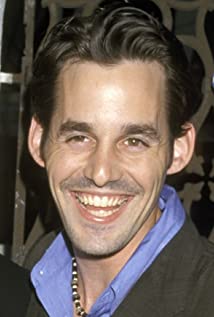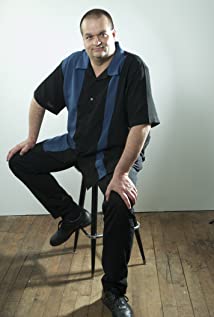Conrad Veidt was born on January 22, 1893 in Potsdam, Brandenburg, Germany, Germany, is Actor, Director, Producer. Conrad Veidt attended the Sophiengymnasium (secondary school) in the Schoeneberg district of Berlin, and graduated without a diploma in 1912, last in his class of 13. Conrad liked animals, theater, cinema, fast cars, pastries, thunderstorms, gardening, swimming and golfing. He disliked heights, flying, the number 17, wearing ties, pudding and interviews. A star of early German cinema, he became a sensation in 1920 with his role as the murderous somnambulist Cesare in Robert Wiene's masterpiece Das Cabinet des Dr. Caligari (1920). Other prominent roles in German silent films included Anders als die Andern (1919) and Das Wachsfigurenkabinett (1924). His third wife, Ilona (nicknamed Lily), was Jewish, although he himself wasn't. However, whenever he had to state his ethnic background on forms to get a job, he wrote: "Jude" (Jew). He and Lily fled Germany in 1933 after the rise to power of Adolf Hitler, and he became a British citizen in 1939. Universal Pictures head Carl Laemmle personally chose Veidt to play Dracula in a film to be directed by Paul Leni based on a successful New York stage play: "Dracula". Ultimately, Bela Lugosi got the role, and Tod Browning directed the film, Dracula (1931). In his last German film, F.P.1 antwortet nicht (1932), Veidt sang a song called "Where the Lighthouse Shines Across the Bay." Although the record was considered a flop in 1933, the song became a hit almost 50 years later, when, in 1980, DJ Terry Wogan played it as a request on the Radio 2 breakfast show. That single playing generated numerous phone calls, and shortly thereafter the song appeared on a British compilation album called "Movie Star Memories" - a collection of songs from 1930s-era films compiled from EMI archives. The album was released by World Records Ltd., and is now out of print but can still be ordered online ("Where the Lighthouse Shines Across the Bay" is track 4 on side 2). Veidt appeared in Germany's first talking picture, Das Land ohne Frauen (1929), and made only one color picture, The Thief of Bagdad (1940), filmed in England and Hollywood. His most famous role was as Gestapo Maj. Strasser in the classic Chuyen Tinh The Chien (1942); although he was not the star of the picture, he was the highest paid actor. He died while playing golf, and on the death certificate his name is misspelled as "Hanz Walter Conrad Veidt". Because he had been blacklisted in Nazi Germany, there was no official announcement there of his death. His ex-wife, Felicitas, and daughter Viola, in Switzerland, heard about it on the radio.
Conrad Veidt is a member of Actor
Does Conrad Veidt Dead or Alive?
As per our current Database, Conrad Veidt has been died on 3 April 1943(1943-04-03) (aged 50)\nHollywood, United States.
🎂 Conrad Veidt - Age, Bio, Faces and Birthday
When Conrad Veidt die, Conrad Veidt was 50 years old.
| Popular As |
Conrad Veidt |
| Occupation |
Actor |
| Age |
50 years old |
| Zodiac Sign |
Aquarius |
| Born |
January 22, 1893 ( Potsdam, Brandenburg, Germany, Germany) |
| Birthday |
January 22 |
| Town/City |
Potsdam, Brandenburg, Germany, Germany |
| Nationality |
Germany |
🌙 Zodiac
Conrad Veidt’s zodiac sign is Aquarius. According to astrologers, the presence of Aries always marks the beginning of something energetic and turbulent. They are continuously looking for dynamic, speed and competition, always being the first in everything - from work to social gatherings. Thanks to its ruling planet Mars and the fact it belongs to the element of Fire (just like Leo and Sagittarius), Aries is one of the most active zodiac signs. It is in their nature to take action, sometimes before they think about it well.
🌙 Chinese Zodiac Signs
Conrad Veidt was born in the Year of the Snake. Those born under the Chinese Zodiac sign of the Snake are seductive, gregarious, introverted, generous, charming, good with money, analytical, insecure, jealous, slightly dangerous, smart, they rely on gut feelings, are hard-working and intelligent. Compatible with Rooster or Ox.
Biography/Timeline
1914
In 1914, Veidt met Actress Lucie Mannheim, with whom he began a relationship. Later in the year Veidt was conscripted into the German Army during World War I. In 1915, he was sent to the Eastern Front as a non-commissioned officer and took part in the Battle of Warsaw. He contracted jaundice and pneumonia, and had to be evacuated to a hospital on the Baltic Sea. While recuperating, he received a letter from Mannheim telling him that she had found work at a theatre in Libau. Intrigued, Veidt applied for the theatre as well. As his condition had not improved, the army allowed him to join the theatre so that he could entertain the troops. While performing at the theatre, he ended his relationship with Mannheim. In late 1916, he was re-examined by the Army and deemed unfit for service; he was given a full discharge in January 1917. Veidt returned to Berlin to pursue his acting career.
1916
From 1916 until his death, Veidt appeared in more than 100 films. One of his earliest performances was as the murderous somnambulist Cesare in Director Robert Wiene's The Cabinet of Dr. Caligari (1920), a classic of German Expressionist cinema, with Werner Krauss and Lil Dagover. His starring role in The Man Who Laughs (1928), as a disfigured circus performer whose face is cut into a permanent grin, provided the (visual) inspiration for the Batman villain the Joker, created in 1940 by Bill Finger. Veidt also starred in other silent horror films such as The Hands of Orlac (1924), another film directed by Robert Wiene, The Student of Prague (1926) and Waxworks (1924) where he played Ivan The Terrible.
1918
Conrad Veidt married three times: he first married Augusta Holl, a cabaret entertainer known as "Gussy", on 18 June 1918. They divorced four years later. Gussy later married German actor Emil Jannings. Veidt's second wife Felicitas Radke was from an aristocratic German family; they married in 1923. Their daughter, Vera Viola Maria, called Viola, was born on 10 August 1925. He last married Ilona Prager, a Hungarian Jew called Lily, in 1933; they were together until his death.
1919
Veidt also appeared in Magnus Hirschfeld's film Anders als die Andern (Different from the Others, 1919), one of the first films to sympathetically portray homosexuality, although the characters in it do not end up happily. He had a leading role in Germany's first talking picture, Das Land ohne Frauen (Land Without Women, 1929).
1920
He moved to Hollywood in the late 1920s and made a few films, but the advent of talking pictures and his difficulty with speaking English led him to return to Germany. During this period he lent his expertise to tutoring aspiring performers, one of whom was the later American character Actress Lisa Golm.
1933
Goebbels had imposed a "racial questionnaire" in which everyone employed in the German film industry had to declare their "race" to continue to work. When Veidt was filling in the questionnaire, he answered the question about what his Rasse (race) was by writing that he was a Jude (Jew). Veidt was not Jewish, but his wife was Jewish, and Veidt would not renounce the woman he loved. Additionally, Veidt who was opposed to anti-Semitism wanted to show solidarity with the German Jewish community, who were rapidly being stripped of their rights as German citizens in the spring of 1933. As one of Germany's most popular actors, Veidt had already been informed that if he was prepared to divorce his wife and declare his support for the new regime, he could continue to act in Germany. Several other leading actors who had been opposed to the Nazis before 1933 switched allegiances. In answering the questionnaire by stating he was a Jew, Veidt rendered himself unemployable in Germany, but stated this sacrifice was worth it as there was nothing in the world that would compel him to break with his wife. Upon hearing about what Veidt had done, Goebbels remarked that he would never act in Germany again.
1934
After arriving in Britain, he perfected his English and starred in the title role of the original anti-Nazi version of Lion Feuchtwanger's novel, Jew Süss (1934) directed by German-born US Director Lothar Mendes and produced by Alexander Korda for Michael Balcon's Denham Studio. He became a British citizen by 1938. By this point multi-lingual, Veidt made films in both French with expatriate French Directors and in English, including three of his best-known roles for British Director Michael Powell in The Spy in Black (1939), Contraband (1940) and The Thief of Bagdad (1940).
1941
He starred in a few films, such as George Cukor's A Woman's Face (1941) where he received billing just under Joan Crawford's and Nazi Agent (1942), in which he had a dual role as both an aristocratic German Nazi spy and as the man's twin brother, an anti-Nazi American. His best-known Hollywood role was as the sinister Major Heinrich Strasser in Casablanca (1942), a film which was written and began pre-production before the United States entered World War II.
1943
Conrad Veidt died on 3 April 1943 of a massive heart attack while playing golf at the Riviera Country Club in Los Angeles with singer Arthur Fields and his personal physician, Dr. Bergman, who pronounced him dead on the scene. Veidt was 50 years old. In 1998, his ashes were placed in a niche of the columbarium at the Golders Green Crematorium in north London.
Conrad Veidt trend





















